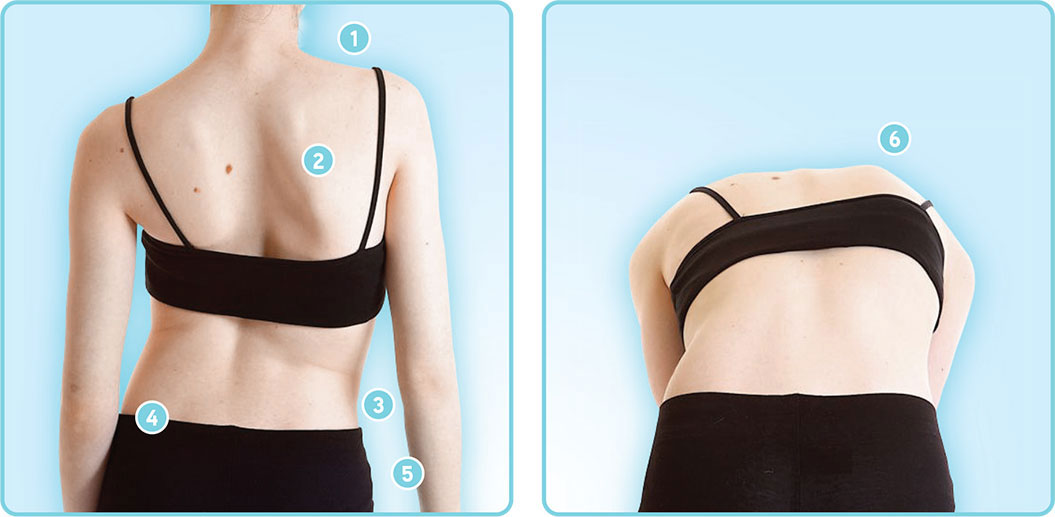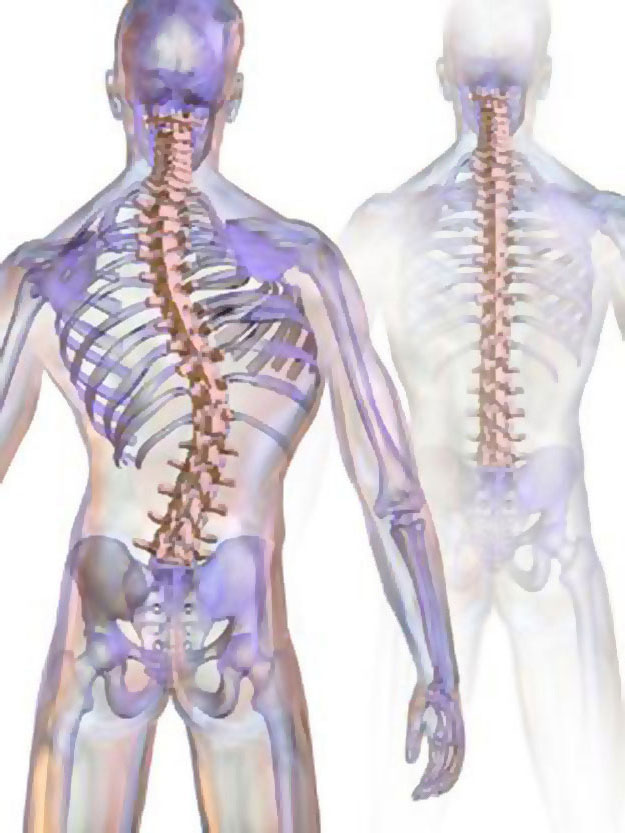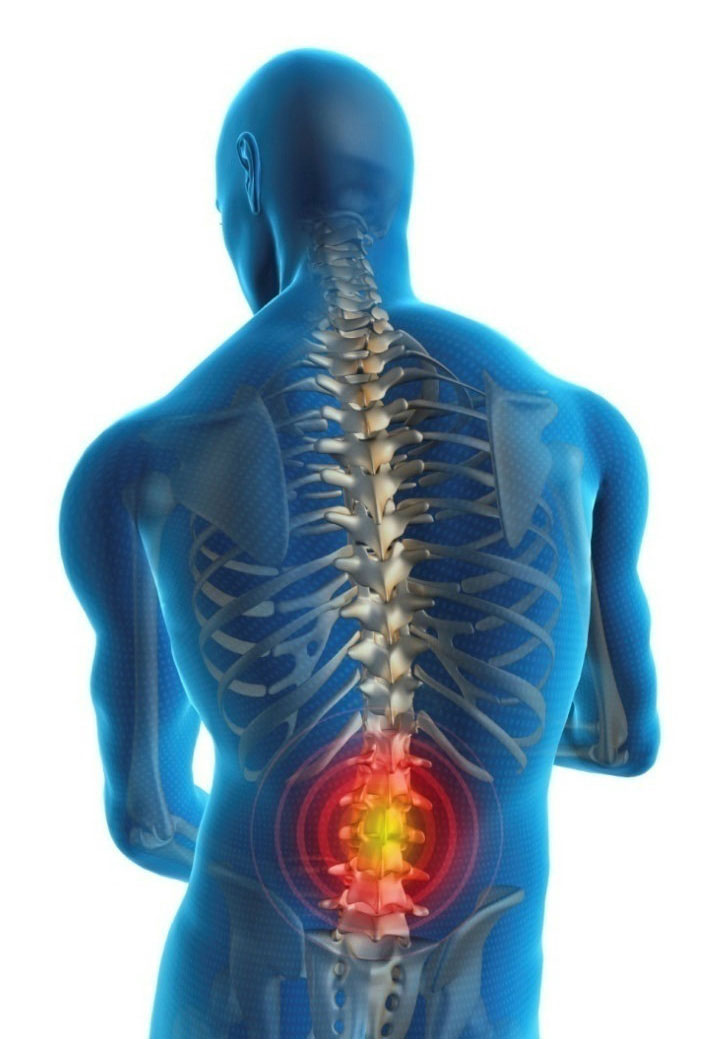SCREENING FOR SCOLIOSIS – SIGNS AND SYMPTOMS
A simple postural assessment allows for the screening of scoliosis. By observing the person from the back and then asking them to bend over, one may note the following:

1 – Uneven shoulder height
2 – Asymmetrical shoulder blades
3 – Asymmetrical waist
4 – Tilted hips
5 – One arm hanging away from trunk
6 – Hump on the back (gibbosity) when bending forward

Image taken from Wikipedia used with permission of Blausen.com staff. "Blausen gallery 2014". Wikiversity Journal of Medicine. DOI:10.15347/wjm/2014.010. ISSN 20018762. - Own work. Licensed under CC BY 3.0 via Wikimedia Commons.
Backache and scoliosis
Can a backache be a sign of scoliosis?
Because backaches can be due to many different causes and one can suffer from scoliosis without feeling any pain, backaches cannot be regarded as symptomatic of scoliosis.
However:
- Should scoliosis be present, there is a good chance that back pain will ensue in the more or less long term.
- If you suffer from back pain, consult a professional (chiropractor or doctor) in order to establish its cause and obtain adequate treatment.
PSEUDO (FALSE) SCOLIOSIS
There is a distinction to be made between genuine scoliosis and what is referred to as a scoliotic attitude or as “pseudo scoliosis.”
A scoliotic attitude, unlike scoliosis:
- is largely associated with poor posture and translates as a lateral imbalance of the upper body. There is no vertebral rotation, therefore no protuberance (hump) on the back when bending forward.
- is largely due to either a difference in the length of the legs (pelvic imbalance), poor postural habits or repeated overloading of one side of the body (school bag with shoulder strap); all of which may lead to muscle imbalance.
- may be due to the adoption of a position intended to alleviate pain when the patient suffers, for example, from a herniated disc or spinal tumour.
WHEN SHOULD YOU CONSULT A DOCTOR?
If you think you or a family member may be suffering from scoliosis or another spinal deformity, contact us, so that we may confirm the diagnosis using the appropriate assessments and x-rays.



